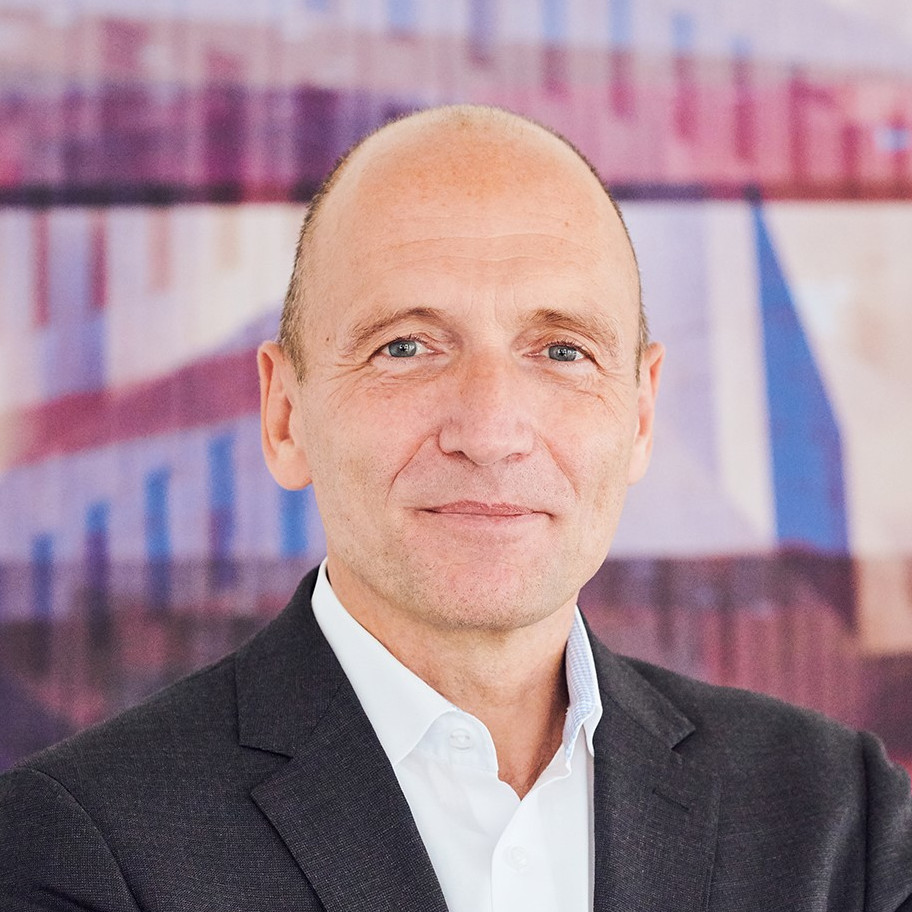Take me to the future
(https://dataweek.de)
2022-07-04 Data Week Opening Day
Program
Wandelhalle08.30 - 09.00: admission
09.00 - 09.45: Opening Data Week Leipzig 2022
-
„Welcoming address“
– Jana Bendigs, communication manager, ScaDS.AI (Center for Scalable Data Analytics and Artificial Intelligence) Dresden/Leipzig; Dr. Michael Martin, Head of Competence Center, Institute for Applied Informatics
- „Welcoming address“ – Sebastian Gemkow, Saxon State Minister for Science, Saxon State Ministry for Science, Culture and Tourism
- „Welcoming address“ – Dr. Beate Ginzel, Digital City Manager, Digital City of Leipzig
09.45 - 10.30: Keynote Errors in data and errors in thinking
PricewaterhouseCoopers GmbH
Among other things, he worked for 11 years in research and development at Vodafone and holds several international patents. He regularly presents, publishes and lectures on how companies can manage digital transformation. He currently works at PricewaterhouseCoopers’ DigiLab as a thought leader on interdisciplinary issues in Artificial Intelligence.
Data describe sections of reality. We draw information from it. New knowledge is created. Data pave the way to a post-digital society. The benefits increase with availability and quantity. We are still stumbling over problems such as data quality, data protection and data security. But there are solutions for these. However, we pay surprisingly little attention to another type of problem: fundamental errors in thinking about data. Ignoring or denying them would be negligent and have unpleasant consequences.
10.30 - 11.00: Coffee Break
11.00 - 12.30: Data for citizens/citizen participation
Chair: Nadja Riedel, City of Leipzig/Digital City Department, Stadt Leipzig/Referat DIgital StadtNo one has more information about the city than the city itself. The city can use this knowledge to improve services and planning or to make decisions more comprehensible. But the city can also share its data with others or incorporate data from others to support urban development processes. This includes, for example, user-generated data from participation projects with citizens, e.g., on city or neighborhood design. However, data sharing also raises questions about the extent of transparency, data ownership and data protection on the digital agenda of cities. In the session, we will examine the opportunities and risks of data use together.
-
„Open Data: Chancen und Risiken aus der rechtlichen Perspektive“
– Stavroula Chatzipanagioti, Self-regulation Information Industry e.V. (SRIW); Sakyi Mannah, Self-regulation Information Industry e.V. (SRIW)
-
„The Open Data Portal of the City of Leipzig: Status Quo & Quo Vadis“
– Dr. Lisa Wenige, City of Leipzig/Statistics and Elections, OpenData, Office for Statistics and Elections
-
„50,000 euros for your ideas - the city district budget“
– Ulrike Herold, Area manager at Office for Council Affairs of the City of Leipzig, Office for Council Affairs of the City of Leipzig; Thomas Schurig, Office for Council Affairs of the City of Leipzig
- „cityscaper - A look into the future“ – Robin Römer, Co-Founder, Cityscaper
11.00 - 12.30: Data for the city of the next generations
Chair: Julia Friedrich, Researcher, Institute for Applied InformaticsSocial data literacy should not be left to chance. Data literacy should therefore not only be a skill of future generations, but must already become a basic building block for the education of people of different ages. In this session, representatives from science, industry and administration will present innovative projects that are currently being implemented in and around Leipzig on data literacy. An outlook on new educational institutions, digital training tools and platforms will also be given.
- „Artificial Human Intelligent. What potential does AI have for the Leipzig region?“ – Dr. Christian Zinke-Wehlmann, Head of the Competence Center Artificial Human Intelligent, Institute for Applied Informatics
- „Urban development and digital twins“ – Mirko Mühlpfort, Team leader at City of Leipzig/Digital City Department, CUT Project, Connected Urban Twins
- „How data literacy makes Germany a digital pioneer“ – Maximilian Barth, Business Development & Strategic Partnerships Manager, StackFuel
12.30 - 13.30: Lunch Break
13.30 - 15.00: How can arts and culture use data?
Simon Maris, Research Associate, XLab - Burg Giebichenstein University of Art Halle; Dr. Ronny Maik Leder, Director, Natural History Museum; Jakob Freese, Coordinator eCulture, Department of Culture, City of Leipzig; Alexa Steinbrück, XLab - platform for digital matterCulture is a lifeline to a livable city. Culture is a mirror of developments, a trendsetter and at the same time a critical voice in the digital transformation of cities. How are digital innovations and the use of big data and artificial intelligence changing artistic processes and the work of cultural professionals? Together with representatives from cultural institutions, we would like to shed light on the possibilities, perspectives and problems of artistic work and cultural institutions in the course of digitalization in this session “Data for Cultural Spaces and Recreation”.
13.30 - 15.00: Data for qualitative living in urban areas
Chair: Mathias Boedecker, City of Leipzig/Geodata infrastructure, City of Leipzig/Geodata infrastructureMobility and energy infrastructures are among the central lifelines of urban areas. They are subject to constant change. This session will present projects, visions and examples of how data can support mobile life.
- „Data for Leipzig - Our contribution to a livable city“ – Jana Dietrich, Head of Department at GeodatenService of the City of Leipzig, City of Leipzig/Geodata infrastructure
- „Intelligent mobility through dynamic data“ – Thomas Grzeschik, Traffic Management at City of Leipzig, Office of Transportation and Public Works Dpt. Road /Traffic Management, Road Traffic Authority / Traffic Management - Traffic and Civil Engineering Office
- „The city as a decentralized business case“ – Simon Albrecht, IT Consultant at Stadtwerke Leipzig, Leipzig municipal utilities
15.00 - 15.10: Changing Rooms
15.10 - 16.30: City data in the context of a networked world
Chair: Tom Potutschek, COO at Gecko Two GmbH, GECKO.2Innovations emerge in ecosystems of urban spaces. In this session, the necessary framework conditions will be discussed: Creativity, support and courage of founders. In addition to the presentation of the innovation competition of the city of Leipzig (Smart City Challenge), successful spin-offs of start-ups in Leipzig will be presented.
-
„SCC - Smart City Challenge of the City of Leipzig “
– Dr. Beate Ginzel, Digital City Manager, Digital City of Leipzig
-
„Presentation of HHL DIGITAL SPACE - The Digital Transformation Platform“
– Sophia Kuhl, Managing Director HHL DIGITAL SPACE
-
„Digitization and inclusion. How a software company develops and what role data plays in this?“
– Ruslan Hrushchak, Managing director, appplant
16.30 - 17.00: Network and exchange platform
17.00 - 18.00: Panel discussion - Leipzig 2045 - How does data support the Digital Urban Transformation?
Dr. Nadine Kuhla von Bergmann, CEO, Creative Climate Cities; Martin Meißner, Spokesman on family policy and digital affairs for the Group, Green faction saxony; Dr. Erik Wende , COO, EWERK; Dr. Erik Peukert, Management Director ScaDS.AI Leipzig, ScaDS.AI (Center for Scalable Data Analytics and Artificial Intelligence) Dresden/Leipzig; Christoph Friedrich, Group Developer - Leipziger Group, LVV Leipziger Versorgungs- und Verkehrsgesellschaft mbH; Dr. Beate Ginzel, Digital City Manager, Digital City of LeipzigTogether with the participants of the Data Week, we will take a look into the future in the panel discussion and imagine the city of Leipzig in the year 2045. What can we achieve using and analyzing data in just under 23 years? How does data support the digital transformation of a city? These questions will be analyzed with the guests in the panel discussion and perspectives, development trends, opportunities and also risks will be considered.
18.00 - 19.00: Visit city hall tower
Built on the foundation of the old Pleißenburg Tower, the tower of the New City Hall is considered the tallest city hall tower in Germany and is one of Leipzig’s most important landmarks. With a height of exactly 114.7 meters, it towers over the entire city. As part of Data Week Leipzig, you have the opportunity to visit the town hall tower with us.
2022-07-05 10th Leipzig Semantic Web Day
Program
Sitzungssaal09.00 - 09.15: Welcome
Dr. Natanael Arndt, Senior Linked Data Expert, eccenca GmbH09.15 - 09.45: Keynote - Knowledge representation as a building block for digital transformation at Siemens
Siemens AG
Sebastian Brandt is Senior Key Expert for knowledge-graphs and data management at Siemens Technology, the global research and development centre of Siemens. Apart from research, Sebastian is helping Siemens businesses get most out of their data across the entire product life-cycle. This involves the creation and maintenance of industrial knowledge-graphs and their deployment in real-world production scenarios.
Prior to Siemens, Sebastian has worked extensively on ontology-based knowledge representation systems for the life-sciences in the Bio-Health Informatics Group at the University of Manchester. His research on subsets of OWL with efficient inference problems has opened the door to the OWL-EL facet in the ontology standard OWL 2.
In all major areas of industry including, Production, Smart Infrastructures, Smart Grids, Healthcare and Energy, Siemens is driving digital transformation by utilizing data in innovative ways. In this setting, Knowledge graphs have become a powerful building block for heterogeneous data-landscapes with complex relations and a foundation for advanced analytics. My talk will relate how knowledge representation is making a difference for Siemens and which trends emerge looking into the future.
09.50 - 10.20: Sustainability and Analytics
Chair: Prof. Dr. Vera Meister, Technische Hochschule Brandenburg, Technische Hochschule Brandenburg-
„Temporal Knowledge Graph Forecasting“
– Julia Gastinger, NEC Laboratories Europe GmbH
-
„FAIR Digital Objects in NFDI4DataScience and Beyond“
– Dr. Sonja Schimmler, Weizenbaum Institute, Fraunhofer FOKUS, TU Berlin; Dr. Adamantios Koumpis, RWTH Aachen, University of Cologne
10.20 - 10.45: Minutes by Future Knowledge Experts (Students)
10.45 - 11.15: Coffee Break & Poster session
11.15 - 12.30: Data Aquisitition and Data Souvereinty
Chair: Dr. Michael Martin, Head of Competence Center, Institute for Applied Informatics-
„Towards Sovereignty in Digital Ecosystems with Solid“
– Matthias Kindermann, Business- & Technische Architektur, DATEV eG
-
„Building and exploring Knowledge Graphs with eccenca Corporate Memory“
– Dr. Natanael Arndt, Senior Linked Data Expert, eccenca GmbH
-
„ALKIS Datenbeschaffungs-API (ADA Projekt)“
– Roy Meissner, Institute for Applied Informatics
- „Linkmaster 3000“ – Dr.-Ing. Sebastian Hellmann, AKSW, DBpedia Association, Institute for Applied Informatics
12.30 - 13.30: Lunch & Poster session
13.30 - 14.30: Collaboration and Ontologies
Chair: Prof. Dr. Thomas Riechert, Leipzig University of Applied Sciences (HTWK)-
„Collaborative and cross-stakeholder ontology engineering“
– Fawad Khan, Scientific Programmer, Technische Informationsbibliothek (TIB)
-
„Why we need Archivo“
– Denis Streitmatter, AKSW, DBpedia Association, Institute for Applied Informatics
-
„Die Semantik der Künstlichen Intelligenz - Die künstliche Intelligenz der Semantik“
– Klaus Däßler, Gesellschaft für Mathematische Intelligenz
-
„CI Pipeline for generating Linked Open Data ontology documentation“
– Lars-Peter Meyer, Institute for Applied Informatics; Kirill Bulert, Institute for Applied Informatics
14.30 - 14.45: Coffee Break & Poster session
14.45 - 16.00: Knowledge Graph Applications
Chair: Dr. Antonin Delpeuch, Institute for Applied Informatics-
„Empowering Product Discovery through Biodiversity“
– Edgard Marx, HTWK Leipzig/eccenca GmbH
-
„Pharma Semantic Search: Connecting Regulatory Information to internal R&D data via a Knowledge Graph“
– Dr. Matthias Jurisch, Manager Information Management Unit, brox IT-Solutions GmbH
-
„The intersection between Materials Science Engineering and Semantic Web“
– Dr. André Valdestilhas, BAM
- „Mobility Index“ – Claus Stadler, Institute for Applied Informatics
16.00 - 16.30: eccenca Poster Winner Awards and Closing
Dr. Sebastian Tramp, CTO, eccenca GmbH16.30 - 17.30: ScaDs.AI Living Lab Tour
Demo session with posters and demonstrators @ ScaDS.AI Living Lab Topic: Life Science
18.00 - 20.00: eccenca Semantic Beergarden
2022-07-06 International Workshop on Data-driven Resilience Research 2022
Program
Sitzungssaal09.00 - 09.15: Welcome
Dr. Sebastian Tramp, CTO, eccenca GmbHBegrüßung und Organisatorisches
09.15 - 10.30: Session I
Chair: Dr. Sebastian Tramp, CTO, eccenca GmbH-
„The Ethical Risks of Analyzing Crisis Events on Social Media with Machine Learning“
– Angelie Kraft, Ph.D. Student, University of Hamburg
-
„Overview of Data-Driven Hazard-Detection Technology Research at WSU’s Disaster Resilience Analytics Center for Enhancing Community Resilience“
– Prof. Dr. Atri Dutta, Associate Professor of Space Dynamics at the Department of Aerospace Engineering, Wichita State University
-
„The Coypu Platform Data Integration Workflow“
– Dr. Natanael Arndt, Senior Linked Data Expert, eccenca GmbH
-
„Semantification of Geospatial Information for Enriched Knowledge Representation in Context of Crisis Informatics“
– Simon Bin, Institute for Applied Informatics; Norman Radtke, Institute for Applied Informatics
10.30 - 11.00: Coffee Break
11.00 - 12.00: Session II
Chair: Dr. Sabine Gründer-Fahrer, Institute for Applied Informatics- „Assessing Anonymized System Logs Usefulness for Behavioral Analysis in RNN Models“ – Tom Richard Vargis, Technische Universität Dresden, Germany, Technische Universität Dresden; Siavash Ghiasvand, Technische Universität Dresden
-
„Der Krisenbegriff und dessen Implikation für Entwicklung von intelligenten Werkzeugen zur Krisenprävention und zum Krisenmanagement“
– Tobias Gebel, Deputy Head of Department in the Research Infrastructure Division, DIW Berlin; Selina Mudrack, Self-regulation Information Industry e.V. (SRIW)
-
„A lightweight citizens information portal for extreme weather events“
– Dr. Richard Figura, CEO, CISS TDI GmbH; Dr. Alexander Willner, CEO, CISS TDI GmbH
-
„FAIR – A project to make weather information more usable“
– Dr. Richard Figura, CEO, CISS TDI GmbH; Dr. Alexander Willner, CEO, CISS TDI GmbH
12.00 - 13.00: Lunch Break
13.00 - 14.30: Session III
Chair: Dr. Antonin Delpeuch, Institute for Applied Informatics- „Früherkennung möglicher Versorgungsstörungen durch die Analyse tiefer Lieferketten (Deep Supply Chains)“ – Dr. Eva Hoerster, Senior Data Scientist, DATEV eG
-
„Resilienzfaktoren von Wertschöpfungsketten in der Agrar- und Ernährungsbranche am Beispiel der Pflanzenölproduktion“
– Johann Lömpcke, IAK Agrar Consulting GmbH, IAK Agrar Consulting GmbH
-
„Multispectral Deep Learning Models for Wildfire Detection“
– Smitha Haridasan, PhD student at School of Computing at Wichita State University, Wichita State University
-
„Multimodal Combination of Text and Image Tweets for Disaster Response Assessment“
– Saideshwar Kota, Wichita State University
14.30 - 15.00: Coffee Break
15.00 - 15.45: Session IV
Chair: Roy Meissner, Institute for Applied Informatics-
„Semantic-Aware Metadata and Resilience of Socio-Cultural Ecosystems“
– Prof. Dr. Hans-Gert Gräbe, Institute for Applied Informatics
-
„Challenges for Achieving Supply Chain Resilience and Transparency within CoyPu“
– Philipp Ulrich, Infineon Technologies AG; Agnes Masip Gomez, Infineon Technologies AG
-
„Challenges in the Creation and Uptake of Ontologies“
– Dr.-Ing. Felix Engel, Project Manager and Terminology Service Coordinator, Technische Informationsbibliothek (TIB)
15.45 - 16.00: Closing
Dr. Sabine Gründer-Fahrer, Institute for Applied Informatics16.30 - 17.30: ScaDs.AI Living Lab Tour
Demo session with posters and demonstrators @ ScaDS.AI Living Lab Topic: Security/Privacy
2022-07-06 DBpedia PhD Symposium
Program
08.45 - 09.00: Meet and greet
09.00 - 09.30: Opening and Invited talk
Sören Auer is Professor for Data Science and Digital Libraries at the Gottfried Wilhelm Leibniz University Hannover and Director of the Technische Informationsbibliothek (TIB) in Hannover. Before being appointed Director of TIB, Sören led the “Enterprise Information Systems (EIS)” department at Fraunhofer Institute for Intelligent Analysis and Information Systems IAIS and held a Chair in Enterprise Information Systems at the University of Bonn. After studying Mathematics and Computer Science at Hagen, Dresden and Yekaterinburg, Sören earned a PhD in Computer Science at Leipzig University. This was followed by posts as post-doctoral researcher at the University of Pennsylvania and at Leipzig University, where he led the “Agile Knowledge Engineering and Semantic Web” (AKSW) research group.
09.30 - 10.30: Session 1
- „Multilingual Accessibility of Knowledge Graph Question Answering Systems“ – Aleksandr Perevalov, PhD Student, Anhalt University of Applied Sciences
- „Towards FAIR Linked Data Integration “ – Johannes Frey, Research assistant, Institute for Applied Informatics
10.30 - 11.00: Coffee Break & Poster Session
11.00 - 12.00: Session 2
- „(WIP) Towards Incremental Knowledge Graph Construction: Reusability and Reproducibility Issues“ – Marvin Hofer, Researcher, ScaDS.AI (Center for Scalable Data Analytics and Artificial Intelligence) Dresden/Leipzig
- „Bringing Research Artifacts (as closer) Together: Knowledge Graphs for Libraries“ – Fidan Limani, Research assistant, Leibniz Information Centre for Economics
12.00 - 13.00: Lunch Break
13.00 - 14.30: Session 3
- „Machine Learning on Semantic Scientific Knowledge “ – Gollam Rabby, PhD Student, Prague University of Economics
- „Distributed Approaches for Knowledge Representation and Reasoning on Geospatial Data“ – Mehdi Azarafza, Scientific Researcher, Institute for Applied Informatics
- „Representation and Reinforcement Learning on Knowledge Graphs“ – Mirza Mohtashim Alam, Research Associate, Institute for Applied Informatics
- „Unsupervised Information Extraction from Academic Data Sources to Knowledge Graphs“ – Paulo Ricardo Viviurka do Carmo, Master student, Institute for Applied Informatics
14.30 - 15.00: Closing
15.00 - 15.45: Coffee Break & Poster Session
Dr.-Ing. Sebastian Hellmann, AKSW, DBpedia Association, Institute for Applied Informatics; Dr. Milan Dojchinovski, Research Associate / Assistant Professor, DBpedia Association15.45 - 16.30: City walking tour
16.30 - 17.30: ScaDs.AI Living Lab Tour
Demo session with posters and demonstrators @ ScaDS.AI Living Lab Topic: Security/Privacy
from 18.00: Informal meeting in a nearby pub
Peter Pane, Katharinenstraße 12, 04109 Leipzig
2022-07-07 5th Big Data and AI in Business Workshop
Program
08.00 - 08.30: Meet and Greet
08.30 - 09.00: Break
09.00 - 09.30: Research and Transfer at the AI Center ScaDS.AI Dresden/Leipzig
Dr. Erik Peukert, Management Director ScaDS.AI Leipzig, ScaDS.AI (Center for Scalable Data Analytics and Artificial Intelligence) Dresden/Leipzig; Prof. Dr. Erhard Rahm, Director ScaDS.AI Dresden/Leipzig, ScaDS.AI (Center for Scalable Data Analytics and Artificial Intelligence) Dresden/Leipzig09.30 - 10.30: Developing data-driven software - It's a little different after all (GER)
His research focus is software processes for the development of data-driven and mobile applications as well as cyber-physical systems.
The talk will first sharpen the concept of data-driven software. Then, typical requirements for data-driven software systems will be discussed and illustrated with examples. From the requirements, it will be derived what software processes for the development of data-driven software systems should look like. In the context of ML/DEV/OPS, it will be discussed how the development of “machine learning” components affects the operation of data-driven systems. *German talk
10.30 - 11.00: Break
11.00 - 11.30: Recommendation System in Industrial Context
Manish Bhandari, Data Scientist Xitaso GmbHIn recent years, there has been a rapid advancement in the field of machine learning, especially deep learning. These advancements have resulted in the emergence of technologies where artificial intelligence assists human activities and sometimes even performs rudimentary and repetitive human tasks. Most of these developments are concentrated in day-to-day human activities. Be it the use of recommendation systems to assist humans’ in picking the right movies or recommending items they might like or translating speech and texts from one language to another. Nevertheless, these advancements can also potentially extend to an industrial context such as the production industry or construction industry. These industries mainly rely on the experience of domain experts to make complex decisions in various situations by analysing decisive parameters. In such cases, artificial intelligence can assist domain experts in making decisions by readily providing data-driven recommendations. These recommendations can then be reviewed by domain experts to make the final decision. In this talk, I would like to present such a use case where a custom-developed recommendation system using language models and vector databases assists domain experts in the construction industry in decision making.
11.30 - 12.00: PreSense – AI-based Predictive Maintenance Tool at SENEC (GER)
Armin Geisler, Senior Business Analyst SENEC GmbH; Alexander Smalla , Data Analyst at SENEC GmbHIn order to improve product quality, SENEC GmbH has launched a project to establish a Predictive maintenance system. Based on frequently repeating failure patterns and reasons for and reasons for failure in electricity storage systems, the underlying assumption is that these patterns can be predicted using statistical analysis and AI methods, these patterns can be predicted to a certain extent. In order to fully undertake this research, SENEC is collaborating with IT-Sonix GmbH together. In the presentation we would like to introduce the technical approach and inform about the current status of the project. *German talk
12.00 - 12.30: Bringing data to life with an intelligent platform for market data analysis
Dr. Hanna Köpcke, Senior Solution Architect VistexVistex develops business software solutions using the latest technologies and agile methodologies to support our customers in key processes such as pricing, contracting, discounting and provisioning. Vistex solutions enable quick access to all relevant information and provide better visibility when planning go-to-market strategies. The result is increased sales, better cost control and higher margins. The Big Data Team in Leipzig is specialized in the scalable collection and analysis of global web data. It currently develops an innovative technology platform for market analysis that combines, processes and links market data from different sources.
12.30 - 13.30: Lunch
13.30 - 14.00: Bridging the gap between Science and Business: Challenges, Opportunities, Use-Cases (GER)
Dr. Sebastian Lehmann, Senior AI Engineer, Appsfactory GmbHEstablishing transforming services using AI technologies in business is still a challenging task. Not only does one have to operate under strict constraints like time, budget and quality but also what is practical in real use case scenarios differs from the academic view. We discuss recent projects using AI at Appsfactory in terms of customer steering, project management, staffing and technical deep dive. Additionally outlined will be successful assessment strategies as an opportunity for better quality control.
14.00 - 14.30: The Data Journey and the Problem with Swarm Intelligence (GER)
Maximilian Pensel , Data Scientist, Alexander Thamm GmbHDiversity of existing and new knowledge and technologies represent a recurring challenge in our everyday life. It is unlikely to find a final answer to these challenges in this fast-moving field, so a continuous and flexible approach, driven by experience, is essential. In the presentation, the methods and technologies of Alexander Thamm GmbH in dealing with these challenges will be presented. Explicitly, it will be about our structuring of data projects and knowledge fields through the Data Journey, as well as our approaches to knowledge consolidation, such as casebase.ai and the Techradar. *German talk
14.30 - 15.00: Snowflake Eating Their Own Dog Food (GER)
Dr. Martin Hentschel , Principal Software Engineer SnowflakeSnowflake uses their own big data technologies to optimize their service offering. Engineers and data scientists at Snowflake crawl petabytes of data to investigate, improve, and monitor all production systems. This talk dives into technologies and advantages of a modern cloud data platform to perform big data operations to optimize operations. *German talk
15.00 - 15.30: AI in E-Commerce and Retail: Where are we? (GER)
Jens Scholz, CEO prudys AGFrom the warehouse to the customer, smart algorithms are changing retail, because retail – like other industries – is facing major challenges. Customers expect permanent availability of services and goods – online and in stores – and at the same time an individually-tailored shopping experience. In addition, retail is under permanent margin pressure and is confronted with extensive digitization of its own processes for competitive reasons. Artificial intelligence plays out its potential in all these fields. The presentation aims to give an overview of the state of the application and shed light on some best practice examples. *German talk
15.30 - 16.00: Break
16.30 - 18.30: ScaDs.AI Living Lab Tour
Demo session with posters and demonstrators @ ScaDS.AI Living Lab Topic: Data Integration
from 19.00: BDIB Dinner
Reception and Dinner
2022-07-08 Quo Vadis Informatik in the Leipzig/Halle Metropolitan Area
Program
Ratsplenarsaal09.00 - 09.15: Welcome
Prof. Dr. Andreas Both, Leipzig University of Applied Sciences (HTWK); Prof. Dr. Thomas Riechert, Leipzig University of Applied Sciences (HTWK)09.15 - 09.35: Gesellschaft für Informatik e.V. current activities
09.35 - 09.55: Calculating optimal timetables that minimises the overall delay of all passengers (InformatiCup2022)
Oliver Herrmann, Leipzig University of Applied Sciences (HTWK); Lennart Carstens-Behrens, Leipzig University of Applied Sciences (HTWK)
09.55 - 10.15: Impuls talk by Marco Langhof
Impuls talk to start the discussion.
10.45 - 11.05: Minute talks from members
These time slots are open to members and interested parties to present and discuss current topics of expert groups. <ul><li>Maik Fröbe: Clickbait Spoiling</li><li>René Meyer: Wandermuseum “Haus der Computerspiele” und seine Aktivitäten</li></ul>
10.45 - 11.15: Coffee break
11.05 - 11.25: Digitisation strategy in Saxony
Prof. Dr. Thomas Riechert, Leipzig University of Applied Sciences (HTWK)Within the digitization strategy in Saxony, the Gesellschaft für Informatik has the opportunity to directly influence the strategy through its representation on the advisory board Beirat für Digitale Wertschöpfung. The advisory board meets at regular intervals, the second meeting will be held on 12.07.2022. Thomas Riechert reports on current activities and brings relevant discussions to the group. https://www.digitales.sachsen.de/index.html



